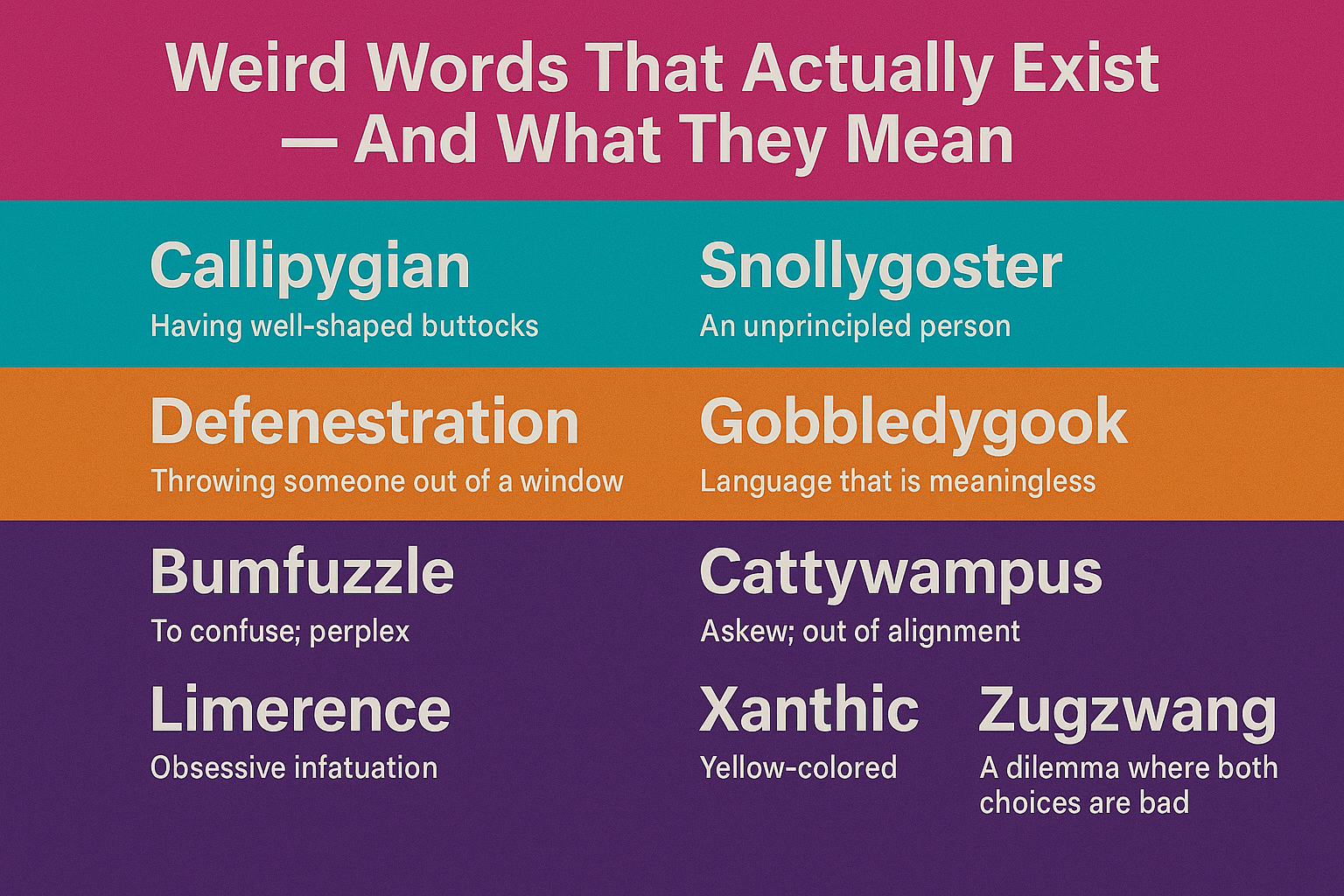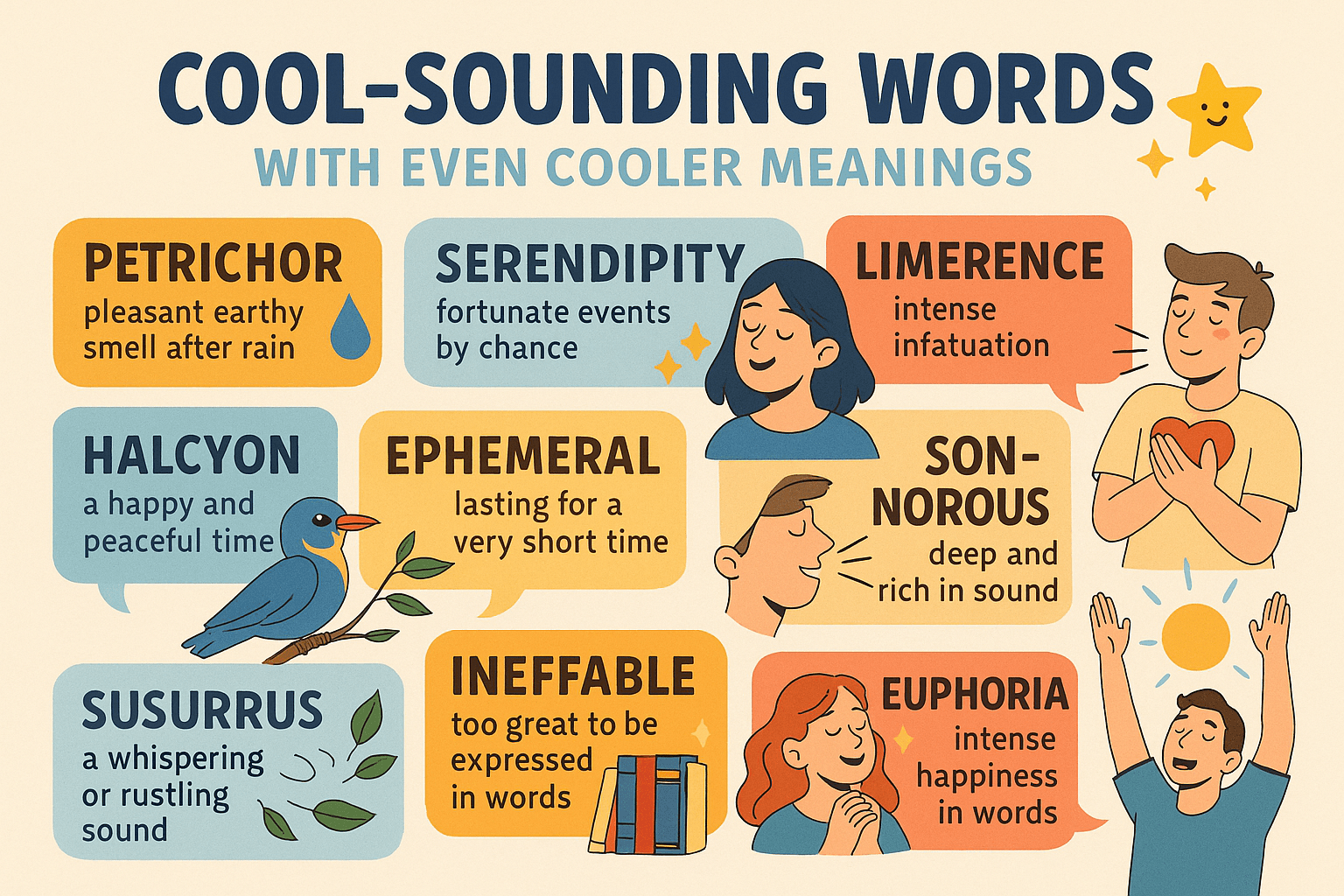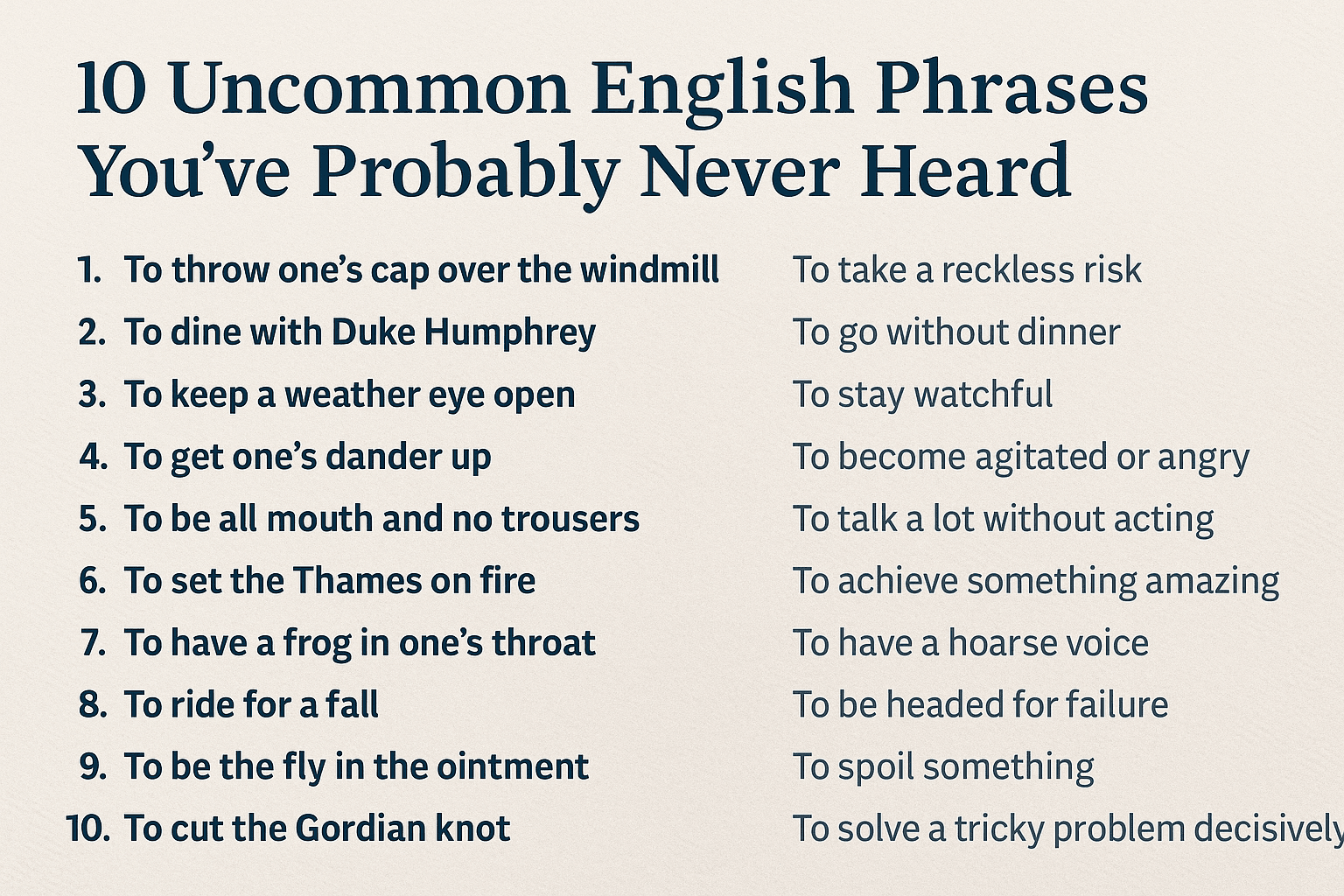English is a wonderfully weird language. Just when you think you’ve heard it all, you stumble upon a word that sounds completely made-up—except it’s 100% real. From tongue-twisting nouns to oddly specific adjectives, there are hundreds of weird English words that actually exist.
Some are obsolete, some are regional, and some are just plain hilarious. In this article, we’ll explore some of the strangest words the English language has to offer—what they mean, how they’re used, and why they’ve stuck around.
Why Weird Words Matter
Weird words serve a few surprising purposes:
- They make language more fun and memorable
- They offer precision for rare or specific situations
- They give insight into history and culture
Plus, they’re just fun to say.
1. Callipygian
Meaning: Having well-shaped buttocks
Example: “The sculpture depicted a callipygian figure.”
Origin: From Greek kallos (beauty) and pygē (buttocks). First used in the 1800s to describe classical sculptures.
2. Snollygoster
Meaning: A shrewd, unprincipled person—especially in politics
Example: “That senator’s just another snollygoster.”
Origin: American slang from the 19th century. Possibly from a blend of dialect words. It briefly reappeared in political discourse in recent years.
🔗 See Merriam-Webster’s definition: Snollygoster
3. Defenestration
Meaning: The act of throwing someone or something out of a window
Example: “The protest ended in the defenestration of several office chairs.”
Origin: From Latin de (down from) + fenestra (window). Famously associated with the 1618 Defenestration of Prague.
4. Gobbledygook
Meaning: Language that is meaningless or hard to understand; bureaucratic jargon
Example: “The instruction manual was full of gobbledygook.”
Origin: Coined in 1944 by U.S. Congressman Maury Maverick, who compared official language to the sound of a turkey.
5. Bumfuzzle
Meaning: To confuse or fluster
Example: “The math problem completely bumfuzzled me.”
Origin: Southern American slang, possibly from “bamboozle” + “fuddle.”
6. Cattywampus
Meaning: Crooked or out of alignment
Example: “The table legs are all cattywampus.”
Origin: American dialect (likely Southern), used since the 1800s. Also appears as catawampus.
7. Limerence
Meaning: The state of being infatuated or obsessed with another person
Example: “Her limerence blinded her to the red flags.”
Origin: Coined in 1979 by psychologist Dorothy Tennov.
🔗 Psychology Today – What Is Limerence?
8. Wamble
Meaning: Stomach rumbling or discomfort
Example: “I skipped breakfast, and now my stomach’s wambly.”
Origin: From Middle English wamelen (to feel nausea). Rarely used today, but still real!
9. Xanthic
Meaning: Yellow-colored
Example: “The xanthic tint of the leaves signaled early autumn.”
Origin: From Greek xanthos (yellow). Mostly used in science or artistic descriptions.
10. Zugzwang
Meaning: A situation in chess where any move made will worsen the player’s position
Example: “She was in zugzwang—no matter what she did, she’d lose.”
Origin: German, from zug (move) + zwang (compulsion). Borrowed directly into English by chess players.
🔗 More chess lingo: Chess.com Glossary
How to Use Weird Words (Without Sounding Weird)
Here’s how to introduce rare vocabulary into your speech or writing:
- Know your audience – Don’t throw “callipygian” into a business email.
- Explain or define it – Especially if you’re writing for clarity.
- Use for effect – Humor, irony, or playfulness work best.
- Pair with familiar language – Balance the weird with the readable.
Weird words can add flavor, depth, and surprise—just don’t overdo it.
Where to Discover More Weird Words
- Oxford English Dictionary (OED) – The king of obscure definitions
- World Wide Words – A treasure trove of strange and historic terms
- Reddit’s r/etymology – For casual learners and word nerds
- Books like “The Horologicon” by Mark Forsyth – A deep dive into forgotten English
Final Thoughts: Embrace the Eccentric Side of English
English has over 170,000 words in current use, and thousands more that are rare or obsolete. Some are elegant, some are awkward—but all tell a story.
Whether you’re feeling wambly, want to avoid gobbledygook, or just need a great word for your next poem or tweet, weird vocabulary is a delightful part of the linguistic landscape.
So next time you feel a little bumfuzzled by language, just remember: English is weird. And that’s what makes it wonderful.




